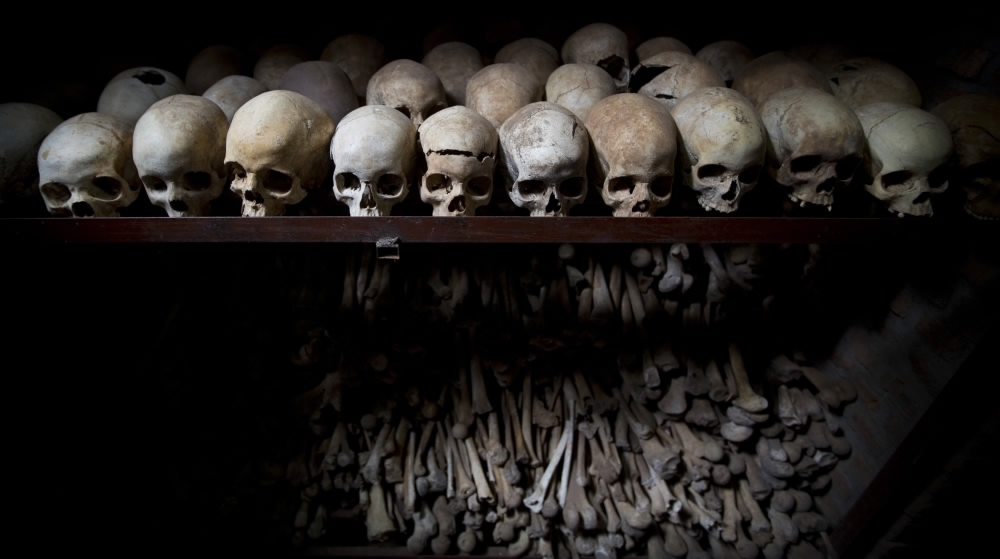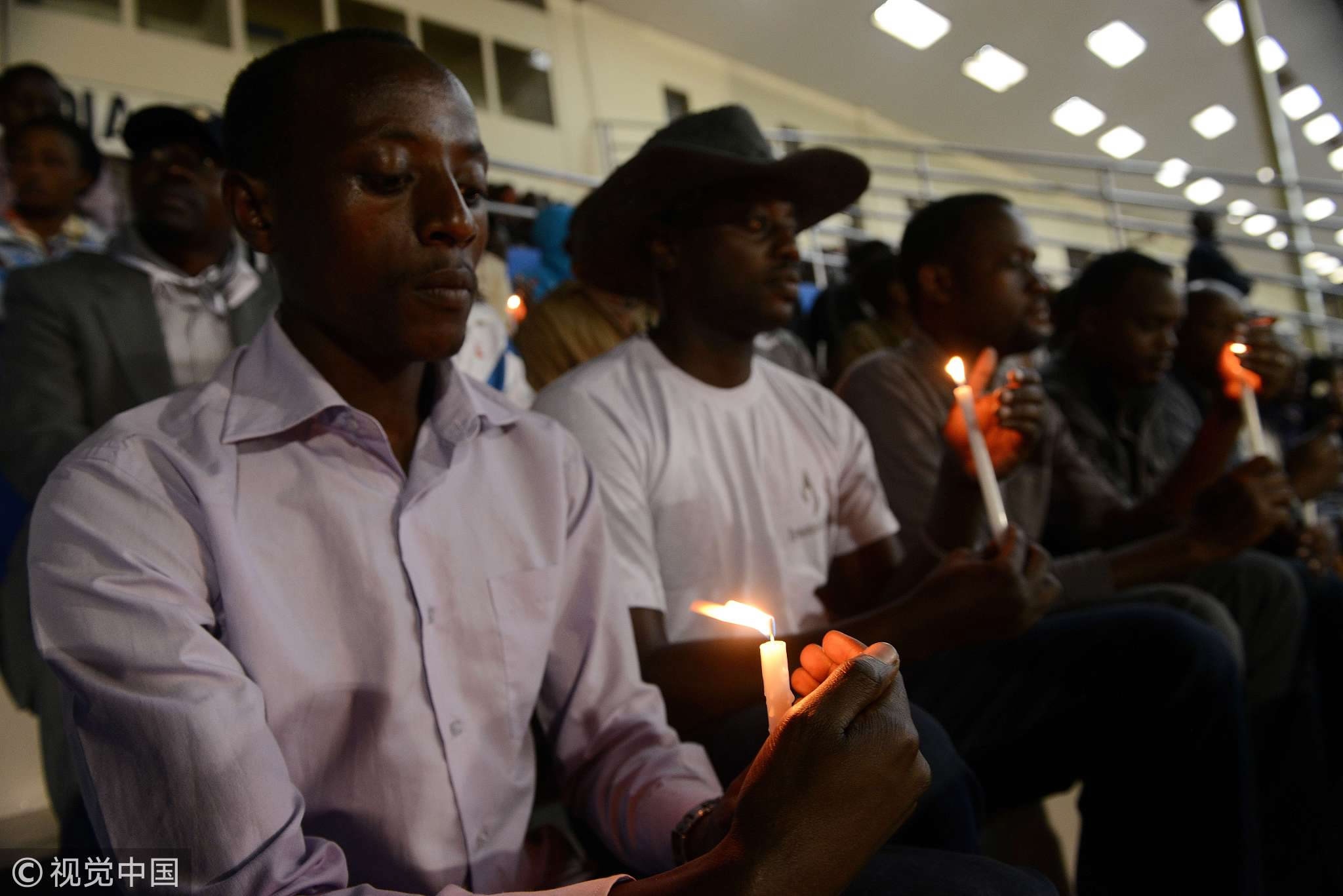
World
20:16, 07-Apr-2018
24 years on: International community must learn from Rwanda's tragedy, says UN chief
By Yvonne Rarieya

As the world officially remembers the genocidal murder of 800,000 Rwandans in 1994, the UN has warned that ethnic cleansing and mass atrocities continue to blight humanity and called for sharper action to prevent such violations in the future.
Twenty-four years ago, on April 7, ethnic Hutus in Rwanda began the frenzied slaughter of Tutsis, moderate Hutus and others in what is widely regarded as one of the darkest episodes in recent history.

Rwandan men hold candles during a night vigil and prayer for genocide victims at the Amahoro stadium in Kigali, Rwanda, April 7, 2014. /VCG Photo
Rwandan men hold candles during a night vigil and prayer for genocide victims at the Amahoro stadium in Kigali, Rwanda, April 7, 2014. /VCG Photo
In memory of the Rwandan victims – and as a somber reminder of the international community’s failure to intervene – the UN designated in 2003 April 7 of every year as the International Day of Reflection on the Genocide in Rwanda.
"Today we remember all those who were murdered and reflect on the suffering of the survivors, who have shown that reconciliation is possible, even after a tragedy of such monumental proportions," said UN Secretary-General Antonio Guterres in a message for the grim anniversary.
"Rwanda has learned from its tragedy; so must the international community," Guterres said, expressing concern about "the rise of racism, hate speech and xenophobia around the world."
The UN will hold a commemorative ceremony on the Rwandan genocide at its New York headquarters on April 13 with the theme "Remember, Unite, Renew."

SITEMAP
Copyright © 2018 CGTN. Beijing ICP prepared NO.16065310-3
Copyright © 2018 CGTN. Beijing ICP prepared NO.16065310-3